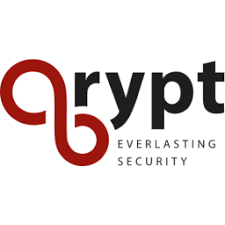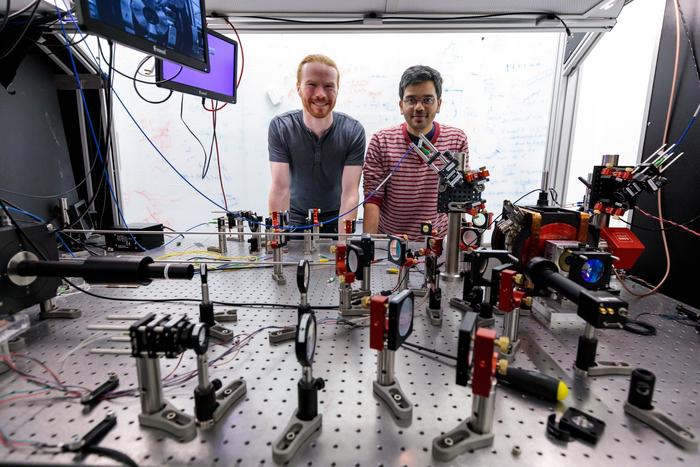With the risk of cybersecurity attacks at an all-time high, quantum computing’s potential has come about at just the right time

Hack Attack
Nothing presents to us the dangers of cybersecurity threats more than the Russian interference in the 2016 United States elections and the Marriott hotel data breach. Though one is political and the other corporate in nature, the damage they have caused is difficult to calculate by mere statistics alone.
As the two examples testify to, people’s lives — and their trust — in the technology that somehow ‘binds’ us has been severely tested numerous times throughout the late 20th and early part of the 21st century.
Now, though the Pentagon and other western democracies would say Russia and its satellites are the cynosures for all this black-hat conjuring of the technological landscape, I seriously doubt that is the case.
China’s cloak and dagger tactics and offhanded behaviour are more a threat to the world’s security than anything Mr Putin can throw at them.
And the Americans and British have blood on their hands, too.

No One’s Innocent
Just last year, the United States ramped up its arsenal of cyber tools on the Russian power grid system in a Trump show of defiance. This ‘hack attack’ was in response to the Kremlin’s constant (according to U.S sources) barrage of cybersecurity attacks.
Another is the Cambridge Analytica scandal. Just look at Alexander Nix, the Eton-educated former CEO of the now-defunct political consulting firm. Born with a platinum spoon in his mouth, he is the epitome of British upper-class hypocrisy with a ‘butter-wouldn’t-melt-in-his-mouth’ attitude. Think Putin’s dangerous? Think again. It’s people like Alexander Nix who you have to look out for.

They say there are two sides to every story, and at TQD we tend to believe it because threats can come from anywhere. Think you’re okay because you’ve got eyes in the back of your head? Think again.
But I have, through anger, or malice, or purely fear for the future I see in front of humankind, left the main road and erred somewhat off track.
Sorry about that.
What I’m trying to get at is in the future we will have to rely on better ways to secure the data we own, share and eventually ‘do away with’. Yet, I’m sure that won’t be possible with the hooded claw at every turn, at least with current cybersecurity solutions.
Computers aren’t up to it anymore. Neither even are their more advanced brethren, supercomputers. The magic of bits and bytes is fading, fast. The digital age, at least in regard to cybersecurity issues, is coming to a sad end.
Quantum computers, then, ‘could’ take cybersecurity solutions to the next level.
Quantum Secure Encryption
At present, the companies in the quantum computing (QC) space whose sole strategy is to advertise, elevate and improve upon current cybersecurity solutions are growing but still modest in number. British startup ArQit, BLAKFX from the USA, CryptoNext and Crypto Quantuique from France, are just four representatives of the almost thirty quantum security companies currently listed on TQD dataset doing everything to make our future technological experience a safe and enjoyable one.
Another of these, one that is making inroads in cybersecurity issues that will — let us hope — prevent altercations like the Cambridge Analytica debacle ever happening again is busy finding ways to work things out.
And all they want are two things: ‘Quantum Secure Encryption’ and ‘Everlasting Security’.
Qrypt — whose headquarters are located at the One World Trade Center in Lower Manhattan— offers encryption solutions to secure enterprise today and eliminate future risk.
The place in itself is poignant. From the ashes comes the phoenix. Maybe Kevin Chalker and Denis Mandich, co-founders of Qrypt, believe the old replacing the new is symbolically befitting for their startup. Qubits replacing bits. A more secure world, all in all.
Qrypt
Founded in 2017, Qrypt realizes current encryption methods are ‘vulnerable and archaic technologies’. Quantum computing, the team believes, will render this technology obsolete and bring in a new world of securer data protection.
‘Qrypt’s post quantum secure encryption protects data indefinitely, delivering everlasting security and ultimate peace of mind.’
CEO and cofounder of Qrypt, Kevin Chalker, has his hand in many pies as far as the startup’s direction goes: from coordinating Qrypt’s global business development, he also builds strategic partnerships while concentrating his efforts on one of the most important things a startup can do: building client relationships.

With a MA in international public policy from Johns Hopkins University, the last decade has seen him involved in a number of business initiatives. These include being the founder and chairman of Global Risk Advisors, a management consultancy firm, as well as a member of the board of directors at investment banking firm Ion Pacific. He also lectures on a graduate-level course at Yale University’s Jackson Institute for Global Affairs on ‘Iran and National Security’.
‘Arguing that you don’t care about the right to privacy because you have nothing to hide is no different than saying you don’t care about free speech because you have nothing to say.’
— Edward Snowden
Denis Mandich, Qrypt’s CTO, has a degree in theoretical and mathematical physics from Rutgers University. With a two-decade-long background in IT for the U.S government, he also had a short stint as CTO with Chalker at Global Risk Advisors.
Qrypt is at the right place at the right time, for sure. With a team of experts in hardware, software and product development in a place whose core values are in dedication, flexibility, security, and diversity, the startup from the Big Apple can — through our own insecurities about technology — become a leading force in QC cybersecurity services for a long time to come.




















